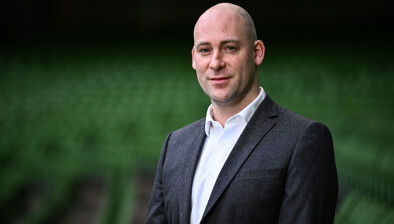High Court: Scratch golfer successfully sues his club for €100,000 injury to his hand

The High Court has ruled that a scratch golfer who lost his index finger while assisting his golf club was entitled to €100,000 in damages arising from the accident. In so finding, the court held that the plaintiff was not a member of the club at the time and was therefore entitled to pursue the claim.
The defendants had argued that the plaintiff had been a member of the club for years and as such, stated that he could not pursue his own club. However, the court held that the club’s constitution had to be construed strictly and that the failure by the plaintiff to pay his fees meant that he was not a member at the time of the accident.
Background
The plaintiff was a scratch golfer and had been a member at Cobh Golf Club since 2009. He had paid his annual subscription fee and joining fee via direct debit and continued to pay his fees until 2014. However, after September 2014 the plaintiff cancelled his direct debit due to lack of funds. He only paid €140 in January 2015 and €150 in April 2015. His annual subscription was €869.
Under the club’s constitution, all members fees were to be paid in full by 31 January each year (running from October to September) and that failure to do so would result in a termination of the membership.
The plaintiff’s accident occurred in June 2015. The plaintiff had been asked to help the fifth defendant in some work. The fifth defendant was a carpenter. At one point, the plaintiff was asked to hold a wooden beam which had been balanced on a milk crate. The fifth defendant attempted to use a circular saw to cut the timber, but he lost control and cut into the plaintiff’s hand.
The plaintiff was rushed to hospital with a severe laceration to his left index finger. He was operated on and received a partial amputation. However, the pain continued to be intense due to nerve damage and eventually, after two further operations, the plaintiff’s finger was fully amputated.
The plaintiff later issued personal injuries proceedings against the defendants, with the first four defendants being trustees of Cobh Golf Club. The expert evidence in the case agreed that the plaintiff should not have been helping with the building work since he was completely inexperienced. Further, it was agreed by the experts that the manner in which the work was carried out was dangerous.
Accordingly, the main basis of the club’s defence focused on the claim that the plaintiff was a member of the club at the time of the accident. Therefore, the club relied on Murphy v Roche [1987] 5 JIC 1504 which held that a member of a club cannot sue the club or his fellow members. Conversely, the plaintiff argued that he was not a member at the time due to having not paid his subscription.
It was also claimed by the club that, in reality, the practice of the club was to allow members to continue their involvement in the club even if they had not paid their fees. It was argued that the plaintiff had represented the club in several events despite not having paid his subscription.
High Court
The court began by stating the well-established principle that a club was an unincorporated association and was not a legal entity. Since a club had no separate legal identity from that of its members, a member suing the club (or the club’s trustees) was in law suing himself (see Murphy v Roche; Kirwan v Mackey [1995] 1 JIC 1801).
The court noted that the plaintiff relied heavily on Walsh v Butler [1997] IEHC 9, in which a rugby player was held to not be a member of his club as he had not paid his subscription for the year and was therefore not a member at the time of his accident.
The court then moved to consider the constitution of the club, which expressly provided that any membership would be terminated if a player did not pay their fees by 31 January. The defendants attempted to rely on provisions that allowed members to pay their fees in instalments, noting that the plaintiff had paid some of his fees in January and April 2015.
The court held that the rules of the constitution were clear and that, even if the defendants were correct, a final instalment would need to be paid before 31 January. The court also disregarded the fact that the plaintiff played in competitions for the club after 31 January, stating that the club was simply not applying its own rules of membership.
The court also distinguished Law Society of Ireland v. MIBI [2017] IESC 31, which cautioned against a purely textual analysis of a club’s constitution. The court held that the wording of the constitution was “crystal clear” and that the comments in Law Society of Ireland v. MIBI concerned a scenario where two possible interpretations were available.
Further, the court rejected the argument that the practice of the club was to treat the plaintiff as a member and therefore he could not sue. Essentially, the defendants argued that the club’s rules had been implicitly amended by allowing the plaintiff to continue membership.
The court held that Dunne & Ors v Mahon & O’Connor [2014] IESC 24 was clear that rules could not be amended by implication. There was no evidence that the members chose to ignore the club’s rules. Further, the defendants’ submission was fraught with difficulty as it would require assessing the current practice of a club, which could vary in any given year and from member to member.
Conclusion
Having rejected the defendants’ submissions, the court went on to hold that the defendants were vicariously liable for the accident. The court held that the evidence established liability. Having regard to inter alia the nature of the accident, the loss of a dominant finger, the three surgeries, the loss of his hobby and the psychological injury, the court awarded €100,000 in general damages to the plaintiff.










